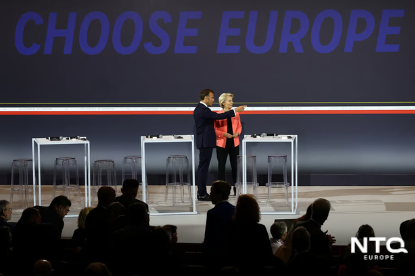EU Signals Global Ambition with New Science Initiative
On May 5, 2025, Ursula von der Leyen and Emmanuel Macron jointly introduced the ‘Choose Europe for Science’ initiative at an event hosted at Sorbonne University in Paris, highlighting a shared commitment to advancing Europe’s role in global research. According to Politico, this ambitious strategy is designed to reassert Europe’s position as a welcoming hub for research in direct response to mounting restrictions on scientific freedom and mobility in other parts of the world, particularly the United States.
At the heart of the initiative is a €500 million funding package allocated for the 2025–2027 period, designed to bring global researchers to Europe, strengthen research infrastructure across the continent, and foster academic collaboration among EU nations. The choice of venue and moment for the announcement was deliberate, sending a strong message that Europe seeks to lead in science and technology not only through regulatory ambition but by backing it with concrete investment and sustained support.

Political Backdrop: Responding to Trump-Era U.S. Policies
As Politico’s analysis highlights, the new program carries clear political undertones. Von der Leyen didn’t hold back in criticizing the Trump administration’s approach to higher education and science policy. She referred to recent U.S. decisions (such as budget cuts to research funding and tighter visa controls for foreign scholars) as a “gigantic miscalculation.”
She emphasized that Europe would not follow a similar path of isolationism or politicization of knowledge, firmly stating, “Science knows no borders.” Macron added that turning away international researchers not only undermines academic freedom but also erodes the democratic foundation on which modern innovation is built.
This initiative, therefore, is not just a funding plan. It’s a geopolitical message. Europe is positioning itself as the antithesis of nationalist, restrictive policy trends, inviting global thinkers to build careers in a system that values open inquiry and long-term vision.
A Legal Framework for Scientific Freedom
In addition to funding, von der Leyen announced her intention to propose a European Research Act. This continent-wide legal framework would enshrine academic freedom, standardize researcher mobility rights, and strengthen collaborative, cross-border innovation protections.
This legal pillar will help reinforce the credibility of the “Choose Europe for Science” initiative’s policy. As Politico notes, it also aims to safeguard researchers and institutions from political interference or censorship, a concern increasingly voiced by global academic communities.
The act will include mechanisms to monitor academic independence, promote ethical standards in research, and reduce red tape in accessing EU-wide funding programs. If passed, it would become one of the world’s most comprehensive legal protections for research ecosystems.
Economic Vision: 3% of GDP for R&D
Another key commitment made during the announcement was a call for EU member states to increase R&D investment to 3% of their GDP by 2030. Currently, most EU countries spend well below that threshold, limiting the region’s ability to compete with innovation powerhouses like the U.S. and China.
Raising this figure signals a shift toward viewing research as strategic infrastructure, not just a budget line. It also aligns with the EU’s digital and green transitions, both of which rely heavily on new scientific breakthroughs and homegrown technological solutions.
In essence, the initiative is about attracting talent and creating a robust ecosystem where research is prioritized and continuously funded.

Europe Positions Itself as a New Home for Global Talent
Beyond its policy and funding components, “Choose Europe for Science” is a branding campaign that positions the EU as a stable, values-driven alternative in a world where research environments are becoming increasingly politicized.
By actively inviting scientists, engineers, and academics from around the world, especially those disillusioned with recent developments in the U.S., the EU is building soft power through science diplomacy. According to Politico, this strategy may also help counter demographic challenges, strengthen Europe’s tech industries, and promote knowledge transfer at scale.
Moreover, the initiative reflects the growing alignment between EU research priorities and global social needs, from AI safety and green energy to life sciences and public health.
Innovation needs freedom, and Europe is ready to protect it.
At NTQ Europe, we see “Choose Europe for Science” as a timely and strategic move that elevates science to its rightful place in the heart of policy and growth. As tech companies across the continent compete for talent and R&D excellence, initiatives like this help build long-term infrastructure for innovation. In a world where global cooperation is increasingly difficult, Europe’s message is clear: when freedom meets funding, progress follows.
Source: Politico



















